This comprehensive timeline concerns the connections between President Donald Trump and his team’s contacts with Vladimir Putin’s Russia before, during, and after the election. It was compiled by me, with help from Derek B. Fox. For analysis on the events in the timeline, read these pieces.
Updated: 10 March 2017.
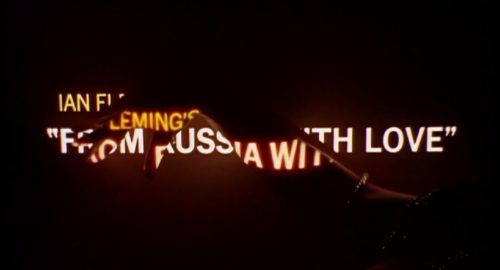
2013: The Curious Case of Edward Snowden
Snowden and Assange are influenced by the Russians. Weiner is compromised. Trump is in Moscow for Miss Universe.
March/April 2013
Edward Snowden begins work as a contractor for Booz Allen, based in Hawaii. He takes the job to steal files from the NSA headquarters there.
March/April 2013
Using the pseudonym Carlos Danger, disgraced former Congressman Anthony Weiner sends lewd photos of himself to a 22-year-old Formspring user, later revealed as Sydney Leathers.
Spring, 2013
Michael Flynn, then director of the Defense Intelligence Agency, travels to Moscow, where he becomes the second DIA director to be invited into the headquarters of Russia’s military intelligence directorate, known as the GRU, although he will later boast that he was the first. “‘Flynn thought he developed some rapport with the GRU chief,’ a former senior U.S. military official said.”
March/April, 2013
Russian hacker Yevgeniy Aleksandrovich Nikulin hacks into “accessed computers belonging to LinkedIn, Dropbox and Formspring,” obtaining information from the computers and causing “damage to computers belonging to a LinkedIn employee and to Formspring by transmitting a program, information, code, or command.” Too, Nikulin “used the credentials of LinkedIn and Formspring employees in connection with the computer intrusions” and “engaged in a conspiracy with unnamed co-conspirators to traffic stolen Formspring user credentials,” per the US DOJ.
4 April, 2013
Colonel Alexander Kazalupov, the Cuba bureau chief of the FSB (Russian intelligence), flies to Quito to meet with agents of SENAIN, the Ecuadorian intelligence agency, most likely about Snowden.
5 April, 2013
Snowden writes his only legal email to the NSA, asking about Executive Orders.
April, 2013
Snowden steals tranche of classified documents from NSA.
May, 2013
Snowden travels to Hong Kong, where he hands stolen data to Glenn Greenwald and Laura Poitras.
8 May, 2013
Formspring shuts down.
4 June, 2013
The stolen NSA documents are published.
9 June, 2013
Snowden reveals his identity as the NSA whistleblower.
18 June, 2013
Trump announces, via Twitter, that Miss Universe will be held in Moscow. “Do you think Putin will be going to The Miss Universe Pageant,” he tweets. “[I]f so, will he become my new best friend?”
June, 2013
Trump claims to have a relationship with Putin, in an interview with NBC. “I do have a relationship and I can tell you that he’s very interested in what we’re doing here today.”
21 June, 2013
The United States formally charges Snowden with espionage.
22 June, 2013
The United States revokes Snowden‘s passport. Julian Assange, holed up at the Ecuadorian embassy in London to avoid a sexual assault charge, arranges Ecuadorian travel papers so that Snowden can fly to Moscow.
23 June, 2013
Snowden flies to Moscow, spends 40 days trapped at the airport.
23 July, 2013
Anthony Weiner‘s Carlos Danger “sexting” scandal becomes public.
1 August, 2013
Snowden is granted asylum in Russia.
28 August, 2013
Anthony Weiner’s wife, longtime Hillary Clinton aide Huma Abedin, announces that the two have separated.
9 November, 2013
Trump is in Moscow for the Miss Universe beauty pageant.
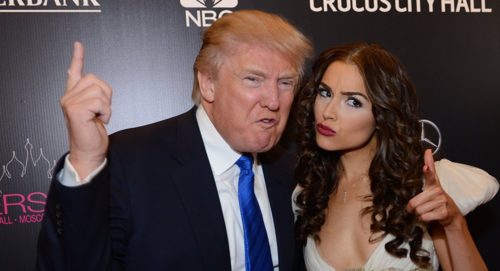
2014: The Crimea Sanction
Russia, Exxon, and aggression in Ukraine.
18 March, 2014
Russia annexes the Crimea.
March/April 2014
The US imposes economic sanctions on Russia as a consequence of its invasion of Ukraine. The sanctions are brutally effective on the Russian economy.
10 October 2014
Sanctions scuttle a deal between Russia and Exxon that would have netted Putin an estimated $500 billion. Exxon CEO Rex Tillerson signed a deal with Russia to drill in the Arctic; for this, he received the Order of Friendship by Vladimir Putin in 2013. The Arctic project is scuttled on October 10, 2014, after the sanctions imposed on Russia by the U.S. government. At the time, Exxon has discovered a new field with an estimated 750 million barrels of oil.

2015-16: Gettin’ Cozy
In which the Russians hack the election, Flynn and Stein are in Moscow, Sessions endorses Trump.
June, 2015
“Cozy Bear” or “APT 29,” hackers working at the behest of the main security service of the Russian government (FSB), successfully hack the servers of the Democratic National Committee (DNC), stealing the party’s opposition research on Donald Trump.
September, 2015
Fusion GPS, an American research firm, is hired by an unknown Republican to do opposition research on Trump. The group collects info about his business and entertainment activities.
September/October, 2015
The FBI notifies the DNC that they have been hacked, but offers no specifics.
10 December 2015
Disgraced former general Michael Flynn gives a talk at a gala for RT, the Russian state-owned network, and is paid by the Kremlin. He sits next to Putin at the dinner, at the same table with Green Party candidate Jill Stein.
28 February, 2016
Alabama’s Jeff Sessions becomes the first senator to endorse Donald Trump.
3 March, 2016
Trump announces that Sessions will lead his National Security Advisory (NSA) Committee.
March, 2016
Paul Manafort receives final illegal payment from his pro-Putin client Yanukovych in Ukraine.
March, 2016
The DNC hires the cybersecurity firm CrowdStrike to help secure its servers.
March, 2016
The hackers “Fancy Bear,” or “APT 28” — working at the behest of the GRU, Russia’s military intelligence service — target the DNC as well as Hillary Clinton’s presidential campaign, including the e-mail account of campaign chairman John Podesta.
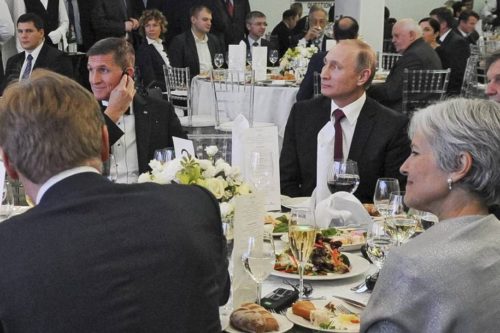
Spring/Summer 2016: Quid Pro Quo
Page, Sessions, Flynn, Steele, Millian, Manafort, Wikileaks, and the rots of Trump’s Faustian bargain.
21 March, 2016
In an interview with the Washington Post, Donald Trump lists among his foreign policy team “Carter Page, PhD.” Page was recommended by Alabama Senator Jeff Sessions, who is also indicated. Notably, Trump does not list Michael Flynn among his advisers.
22 March, 2016
The New York Times runs a story on Trump’s no-name foreign adviser team, explaining that Carter Page is “a managing partner at Global Energy Capital, who will be advising Mr. Trump on energy policy and Russia.” Another managing partner is Sergei Millian, founder of the Russian-American Chamber of Commerce, who claimed to be the exclusive broker for Trump real estate ventures in Russia. Millian is reported to be “Source E” in the Steele dossier.
30 March, 2016
Carter Page gives an interview to Bloomberg, which reports: “In Russia, Page developed relationships with executives at Gazprom, the former Soviet gas ministry that was partially privatized in the 1990s. By the time Page arrived, Putin was consolidating his grip on the country’s economy, and in 2005 the government boosted its stake so that it again owned a majority of the stock. Page says he advised Gazprom on its largest deals during this period, such as buying of a stake in the Sakhalin oil and gas field in the Sea of Okhotsk. He also helped the company court Western investors, assisting in setting up the first regular meetings with shareholders in New York and London. Before he moved back to New York in 2007, he says, many of its top officials showed up at his going-away party, at a restaurant near the Kremlin.”
April, 2016
Manafort is named chairman of the Trump campaign.
27 April, 2016
Trump meets the Russian ambassador at an event at the Mayflower hotel. He will later deny ever meeting him.
May/June 2016
Michael Flynn‘s name is bandied about as a possible “Dark Horse” choice for Trump’s VP.
May 2016
Trump becomes presumptive GOP nominee. Republican donor who’d been paying for opposition research via Fusion GPS withdraws, and contract is taken over by unidentified Democratic client.
June, 2016
CrowdStrike releases evidence of Fancy/Cozy Bear’s involvement in the DNC hacks. A shadowy figure called Guccifer 2.0 begins releasing the emails, and claims responsibility for the hacks. It is widely believed Guccifer 2.0 is an online persona and not a real person.
June, 2016
Fusion GPS hires Orbis Business Intelligence, a private British firm, to look into Russian connections of hacking. The investigation is undertaken by co-founder Christopher Steele, a retired MI6 agent. He delivers a series of intelligence reports known here as the “Steele dossier.”
18-21 July, 2016
RNC Convention in Cleveland.
Sessions meets with the Russian ambassador, Kislyak. The meeting and trip are financed using campaign funds, although Sessions claimed he was meeting Kislyak as a senator and not as a Trump surrogate.
Trump adviser Jeff D. Gordon, following a direct request from Trump, advocates for the GOP platform to include language against arming Ukraine against pro-Russian rebels at a national security subcommittee meeting. He and his associates manage to convince delegate Diana Denman to soften the GOP’s position.
Walid Phares, Carter Page, and Gordon, all foreign advisers to Trump, meet with Russian ambassador Kislyak.
19 July, 2016
In his intelligence report, Christopher Steele reports on a meeting between Donald Trump foreign affairs adviser Carter Page and the head of Russian state oil company Rosneft Igor Sechin, a “Putin close associate and US-sanctioned individual”—that is, someone personally blacklisted by the U.S. government. Sechin “raised with Page the issues of future bilateral energy cooperation and prospects for an associated move to lift Ukraine-related Western sanctions against Russia.” Page reacted positively to the discussions, Steele reports. (Steele dossier, p. 9).
21 July, 2016
RNC Convention ends.
22 July, 2016
WikiLeaks, i.e. Julian Assange, posts 20,000 stolen DNC emails.
28 July, 2016
Donald Trump calls on Russia to help locate 30,000 Hillary Clinton emails that he believes had been deleted.
31 July, 2016
Manafort says on “Meet the Press” that the effort to keep the [GOP] platform from supporting arms for Ukraine “absolutely did not come from the Trump campaign.” Chuck Todd replies, “So nobody from the Trump Campaign wanted that change in the platform?” Manafort responds, “No one, zero.”
In an interview with George Stephanopoulos on ABC regarding the GOP’s platform on the Ukraine, Trump says: “They softened it, I heard, but I was not involved.”
July, 2016
Christopher Steele begins to share his reports with the FBI. The FBI subsequently announces that it has begin investigating the DNC hacking.
10 August, 2016
Roger Stone either resigns or is fired from the Trump campaign.
18 August, 2016
Manafort resigns as chairman of the Trump campaign after the Ukrainian government’s National Anti-Corruption Bureau claimed to have found handwritten records that show $12.7 million in off-the-books cash payments designated for Manafort, who was adviser to Viktor Yanukovych. The pro-Putin Yanukovych was removed from power in February of 2014, is currently in exile in Russia, and is wanted by Ukraine for high treason.
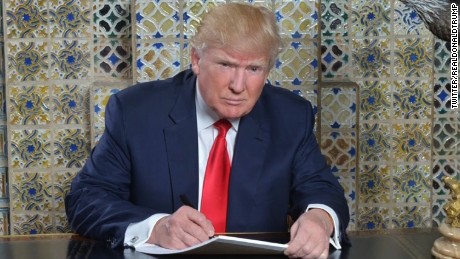
Late Summer, 2016: The Russians Are Coming!
Sanctions, Sessions, Kislyak, DNC Emails.
21 August, 2016
Roger Stone tweets: “Trust me, it will soon [be] Podesta’s time in the barrel. #Crooked Hillary,” suggesting advance knowledge of the DNC hack and the Wikileaks plan to release the Podesta emails.
August, 2016
Mikhail Kalugin, a Russian diplomat stationed at the US embassy in Washington, leaves the country. Christopher Steele explains that Kalugin was “withdrawn from Washington at short notice because Moscow feared his heavy involvement in the US presidential election operation . . . would be exposed in the media,” and that Kalugin was involved in moving “tens of thousands of dollars” to cyber hackers and other operatives through a system that distributes pension benefits to Russian military veterans living in the United States.
1 September, 2016
The US imposes a new round of sanctions targeting 37 individuals and companies involved in the Ukraine aggression.
4-5 September, 2016
Presidents Obama and Putin meet at the G20 Summit in China, where the new sanctions are discussed.
7 September, 2016
Director of National Intelligence James Clapper publicly suggests that Russia is behind the DNC hack. This is the first public statement indicating Russian complicity.
8 September, 2016
Sessions meets with the Russian ambassador Kislyak again, this time in his Senate office. In interview with Russian media, Trump says it’s “probably unlikely” the Russians hacked the election. In an interview with Larry King, Trump blames the Russian hacking story on the Democrats. In other interviews, Trump and Pence praise Putin. RASS suggests that the relationship with the US will improve after the election. (See @RAWonk’s thread for full breakdown of this remarkable day).
13 September, 2016
Sessions and the Russian ambassador Kislyak reportedly speak via phone.
14 September, 2016
A second batch of hacked DNC emails is released.
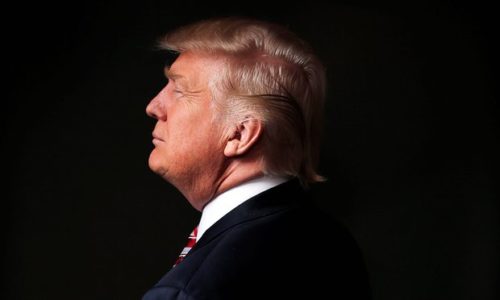
Fall, 2016: October Surprise
The events leading to the Comey letter and the election upset.
21 September, 2016
The British tabloid The Daily Mail reports that Anthony Weiner had engaged in a months-long sexting with a 15-year-old girl, and that devices owned by Weiner were seized as part of an investigation into this incident.
23 September, 2016
Writing for Politico Magazine, Julia Ioffe, a reporter with long experience covering Russia, reports that none of her sources had ever heard of Carter Page, including Bill Browder. “(“I can poll any number of people involved in energy in Russia about Carter Page and they’ll say, ‘Carter who? You mean Jimmy Carter?’” says one veteran Western investor in Russian energy.)” Her conclusion is that Page is less a legit adviser than a nebbish who wound up on a list of potential advisers by accident and sought to capitalize on the mistake.
October, 2016
Christopher Steele agrees to continue his intelligence reports for the FBI, for a fee. At this point, the FBI’s counterintelligence division has full knowledge of the reports in the dossier.
3 October, 2016
The NYPD, acting on a tip from the FBI’s New York field office, seizes Weiner’s laptop.
5 October, 2016
The Russian hacker Nikulin is arrested in Prague. The FBI had issued a “red notice” for his apprehension and calls for his extradition to the U.S. to face charges.
7 October, 2016
The Washington Post releases the Donald Trump/Billy Bush/Access Hollywood video, in which Trump claims he can “grab” women “by the pussy.” This is widely thought to be the “October surprise” that will sink Trump’s already-faltering campaign.
Department of Homeland Security and the Office of the Director of National Intelligence release a joint statement blaming the Russian government for hacking the DNC.
10 October, 2016
At the second presidential debate between Trump and Hillary Clinton, Trump says regarding Russian hacking: “I notice, any time anything wrong happens, they like to say the Russians. Well, [Clinton] doesn’t know if it’s the Russians doing the hacking. Maybe there is no hacking.”
11 October, 2016
Donald Trump, Jr. attends a conference in Paris hosted by the Centre of Political and Foreign Affairs, where he meets with pro-Kremlin Randa Kassis about potential US/Russia cooperation in Syria.
15 October, 2016
The US secret intelligence court issues a warrant to investigate two Russian banks.
17 October, 2016
Obama officially accuses Russia of meddling in the election.
18 October, 2016
In his intelligence report, Steele reveals more information about the summer rendezvous between Trump foreign affairs advisor Carter Page and Igor Sechin, a Putin ally on the US sanctions list. “[T]he Rosneft company president was so keen to lift personal and corporate [W]estern sanctions imposed on the company that he offered PAGE/TRUMP’s associates the brokerage of up to a 19 percent (privatized) stake in Rosneft in return. PAGE had expressed interest and confirmed that were TRUMP elected US president, then sanctions on Russia would be lifted.” (Steele dossier, p. 30)
18 October, 2016
At the third and final presidential debate, the candidates share this exchange:
Trump: [Clinton] has no idea whether it is Russia, China or anybody else.
Clinton: I am not quoting myself.
Trump: You have no idea.
Clinton: I am quoting seventeen, seventeen [US intelligence agencies.] Do you doubt…
Trump: Our country has no idea.
26 October, 2016
Rudy Giuliani, the former mayor of New York and a prominent Trump surrogate, boasted on TV about an October surprise coming that would mortally wound Hillary Clinton’s campaign.
28 October, 2016
FBI director James Comey sends a letter to Congress, revealing the Weiner latop and the possible re-opening of the Hillary/email investigation.
31 October, 2016
The Steele dossier is made available to David Corn, the Washington correspondent for Mother Jones.
31 October, 2016
Two weeks after the FBI receives the FISA warrant to investigate two Russian banks, Franklin Foer publishes in Slate his story about computer servers linking the Trump Organization and Russia’s Alfa Bank.
31 October, 2016
The Washington Post and The Intercept publish pieces “debunking” the “communicating servers” report.
31 October, 2016
The New York Times runs a story with the headline “Investigating Donald Trump, FBI Sees No Clear Link to Russia.” The story is misleading.
4 November, 2016
Giuliani says that his friends at the FBI told him about the October surprise.
8 November, 2016
Donald Trump wins the election.
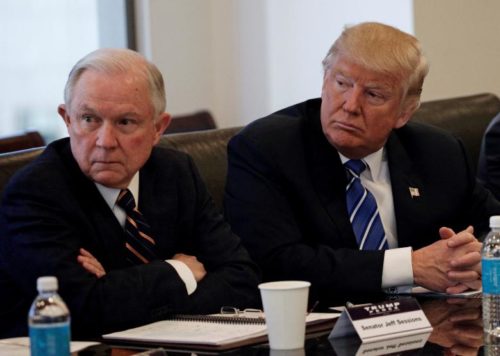
Donald Trump sits with U.S. Senator Jeff Sessions (R-AL) at Trump Tower in Manhattan, New York, U.S., October 7, 2016. REUTERS/Mike Segar/File Photo
Post-Election, 2016-2017: The Shit Hits the Fan
Leak leak leak, drip drip drip.
8 November, 2016
Sergei Krivov, a Russian cyber security officer, is found dead at the Russian consulate in New York. There is discrepancy regarding how he died – head wound vs. internal bleeding from brain tumor vs. heart attack. The NYPD closes the case without specifying cause of death. Russian officials claim Krivov suffered a heart attack that made him fall and hit his head.
18 November, 2016
Flynn is appointed National Security Adviser.
7 December, 2016
Putin and Igor Sechin, head of Russian oil giant Rosneft, announce a plan to privatize 19.5% of the company. The price is 10.2 billion euros. The brokerage commission of the sale is, conservatively, a hundred million euros. (This sale was known to Steele and cited in the Steele dossier months earlier).
8 December, 2017
Carter Page meets with Rosneft senior executives in Moscow.
12 December, 2017
Carter Page gives a controversial lecture in Moscow. Ivan Nechepurenko, a correspondent for the New York Times, tweets: “U.S. government might have deliberately orchestrated cyberattacks to make it look as though they were coming from Russia, Carter Page says.”
Ex-Exxon CEO Rex Tillerson is nominated to be Secretary of State.
20 December, 2017
Jared Kushner, Trump’s son-in-law and consiglieri, meets with Flynn and the Russian ambassador Kislyak at Trump Tower.
26 December 2016
Oleg Erovinkin, a former Russian intelligence agent and aid to former deputy prime minister Igor Sechin, and intermediate between Sechin and Putin, is found dead in the back of his car in Moscow. Erovinkin allegedly is one of the sources for the Steele dossier. The death is labelled “mysterious.”
29 December 2016
The Intelligence Community releases its report on Russian hacking. President Obama imposes still more sanctions against Russia, as retribution for its attempts to undermine the US election. Michael Flynn, the in-coming national security adviser, continues his on-going conversations conversations with the Russian ambassador. Flynn denies sanctions were ever discussed, as does Vice President-Elect Mike Pence. Trump downplays the allegations: “It’s time for our country to move on to bigger and better things.”
29 December 2016
In a phone call with Russian ambassador Kislyak, Flynn discusses sanctions. Later he denies doing so, then says he couldn’t remember what was discussed, then admits it.
30 December 2017
Putin responds to the new round of sanctions by trolling Obama on social media, and inviting the families of American diplomats to his holiday party. He says he will delay any further response. Trump tweets his approval: “Great move on delay (by V. Putin) – I always knew he was very smart!”
6 January, 2017
Trump is briefed by NSA, FBI, CIA, and the Director of National Intelligence. He then issues a statement: “While Russia, China, other countries, other groups and people are constantly trying to break through the cyber infrastructure of our government institutions, businesses and organizations including the Democratic National Committee, there was no effect on the outcome of the election including the fact that there was no tampering whatsoever with voting machines.” No intelligence official had claimed that hackers had tampered with voting machines.
9 January, 2017
Trump and Obama are both briefed on the Steele dossier.
10 January, 2017
After a CNN report alludes to the Steele report, Buzzfeed publishes the Steele dossier in its entirety.
11 January, 2017
Trump says that the Steele dossier is “all fake news . . . It’s phony stuff. It didn’t happen.” The media focuses almost entirely on the “golden shower” detail. Spokesman Sean Spicer says of Carter Page, who is mentioned by name in the dossier: “Carter Page is an individual who[m] the president-elect does not know and was put on notice months ago by the campaign.”
13 January, 2017
In an interview with the Wall Street Journal, Trump suggests that Russian sanctions could be lifted if Russia proves an ally.
20 January, 2017
Donald Trump is inaugurated president of the United States. The New York Times reports that the FBI, CIA, National Security Agency and the Treasury Department are investigating possible links between Russian officials and Trump campaign associates, namely Paul Manafort, Carter Page, Michael Flynn, and Roger Stone, a longtime Trump adviser.
The New York Times‘ public editor explains the inaccuracies and bad reporting in the October 31 article “Investigating Donald Trump, FBI Sees No Clear Link to Russia.” The Times knew more than it was willing to print.
25 January, 2017
Reuters reports that a month after the Rosneft deal, it is still not clear who exactly purchased the 19.5% stake in the Russian state oil company.
26 January, 2017
Acting Attorney General Sally Yates informs White House counsel Donald McGahn that Flynn has lied about contacts with Kislyak.
27 January, 2017
In advance of the planned called between President Trump and President Putin, which the latter announced on Russian TV, Kellyanne Conway confirms that the lifting of the Russian sanctions is a possibility. “All of that is under consideration,” she says.
Business Insider reports that the Rosneft “privatization deal was funded by Gazprombank, whose parent company is the state-owned Russian energy giant Gazprom.”
28 January, 2017
President Trump and President Putin speak on the phone for the first time. Neither mention that sanctions are explicitly discussed, although the subject is hinted at. (The rumor that recording devices are turned off for part of the call are later confirmed as untrue).
1 February, 2017
Russian troops begin to shell eastern Ukraine, escalating the Crimea conflict. Trump makes no comment on this.
Early February, 2017
Andrii V. Artemenko, a Ukranian lawmaker, meets with Michael Cohen and Felix Sater (Trump’s personal attorney and longtime business associate, respectively) in New York regarding a potential “peace plan” for Trump to consider in Ukraine which would relax pressure on Russia. Moscow also supposedly holds kompromat on current Ukrainian president Petro Poroshenko and suggests ways that info could be used.
2 February, 2017
Trump begins to lift sanctions on Russia, starting with the FSB/intelligence service—the very arm of the Russian government thought to have perpetrated the election hacks.
9 February 2017
The Washington Post reports that nine (nine!) current and former US officials claim that Michael Flynn did, in fact, discuss sanctions with the Russian ambassador in a series of conversations in November and December.
10 February, 2017
News outlets report that the Steele dossier is “gaining credibility with law enforcement.”
11 February, 2017
Putin floats the idea of returning Edward Snowden to the US to “curry favor” with Trump.
13 February, 2017
After the revelation that he’d “misled” the president and vice president in the nature of his pre-inauguration talks with the Russian ambassador, Mike Flynn resigns as national security adviser. No one in the US defends him, but his ouster is marked by impassioned defenses from Russian lawmakers.
14 February, 2017
The New York Times reports that members of Trump’s campaign had repeated contacts with Russian intelligence officials in the year before the election.
14 February, 2017
Rep. Devin Nunes (R-Calif.), a member of Trump’s transition team and chairman of the House intelligence committee, responds to Flynn’s firing, saying he is concerned that Flynn’s rights were violated in the interception of his conversations with the Russian ambassador. “I’m just shocked that nobody’s covering the real crime here,” Nunes says. “You have an American citizen who had his phone call recorded and then leaked to the media.”
Manafort is asked by TIME about his contacts with Russia. “I have never knowingly spoken to Russian intelligence officers and I have never been involved with anything to do with the Russian government or the Putin administration or any other issues under investigation today,” Manafort says, despite ample evidence to the contrary.
15 February, 2017
FBI Deputy Director Andrew McCabe meets with Chief of Staff Reince Preibus unofficially to tell him the NYT story was overreaching. Priebus asks McCabe and Comey to dispute media reporting the opposite. The FBI declines. Preibus then asks Rep. Nunes and Sen. Burr (chairs of the House and Senate Intelligence Committees, respectively) to make calls to the media to throw cold water on Russian stories; both do.
15 February, 2017
FBI Director Comey briefs the Senate Intelligence Committee for three hours. The senators are more tight-lipped than usual after the meeting. Rubio tweets that he now expects a full investigation.
20 February, 2017
Vitaly Churkin, the Russian ambassador to the United Nations, dies of “heart failure.” The New York City Medical Exmainer’s office states that further study is needed, indicating possibility of a toxicology test suggesting poisoning. Churkin was the first to invite Trump to the USSR, in 1986.
27 February, 2017
Rachel Maddow reports on the shady connections between Trump, Russian organized crime figures, and the new Secretary of Commerce, billionaire Wilbur Ross. Ross owns a huge stake in a Cypriot bank known to be a haven for dirty Russian money.
2 March, 2017
Alex Oronov, a 69-year-old Ukrainian-American, dies of mysterious circumstances. He’s the one who arranged the secret rendezvous between Michael Cohen, Trump’s personal attorney, Trump associate Felix Sater, and Russian/Ukrainian officials, to discuss peace in the Crimea.
3 March, 2017
Under pressure from a Washington Post story confirming that he met with the Russian ambassador Kislyak several times, contrary to his statements under oath at his confirmation hearing, Sessions recuses himself from any future hearings regarding Russia.
3 March, 2017
Senator Chris Coons (D-Del.) tells Andrea Mitchell: “There are transcripts that provide very helpful, very critical insights into whether or not Russian intelligence and senior Russian political leaders, including Vladimir Putin, were cooperating, were colluding with the Trump campaign at the highest levels to influence the outcome of our election. And if that information is stonewalled or hidden away and if we are not able to get that on the Senate intelligence committee, House intelligence committee then I think that has real consequences for our democracy.”
4 March, 2017
In a fiery series of tweets, Trump confirms that his phones had been wiretapped, suggesting that transcripts of conversations indicated by Coons do exist.
6 March, 2017
Sen. Chuck Grassley (R-Ia.) sends a letter to FBI director Comey insisting on answers to a range of Trump/Russia questions, to be delivered by 20 March.



“Cozy Bear” hacked the DNC in June of 2016, not 2015